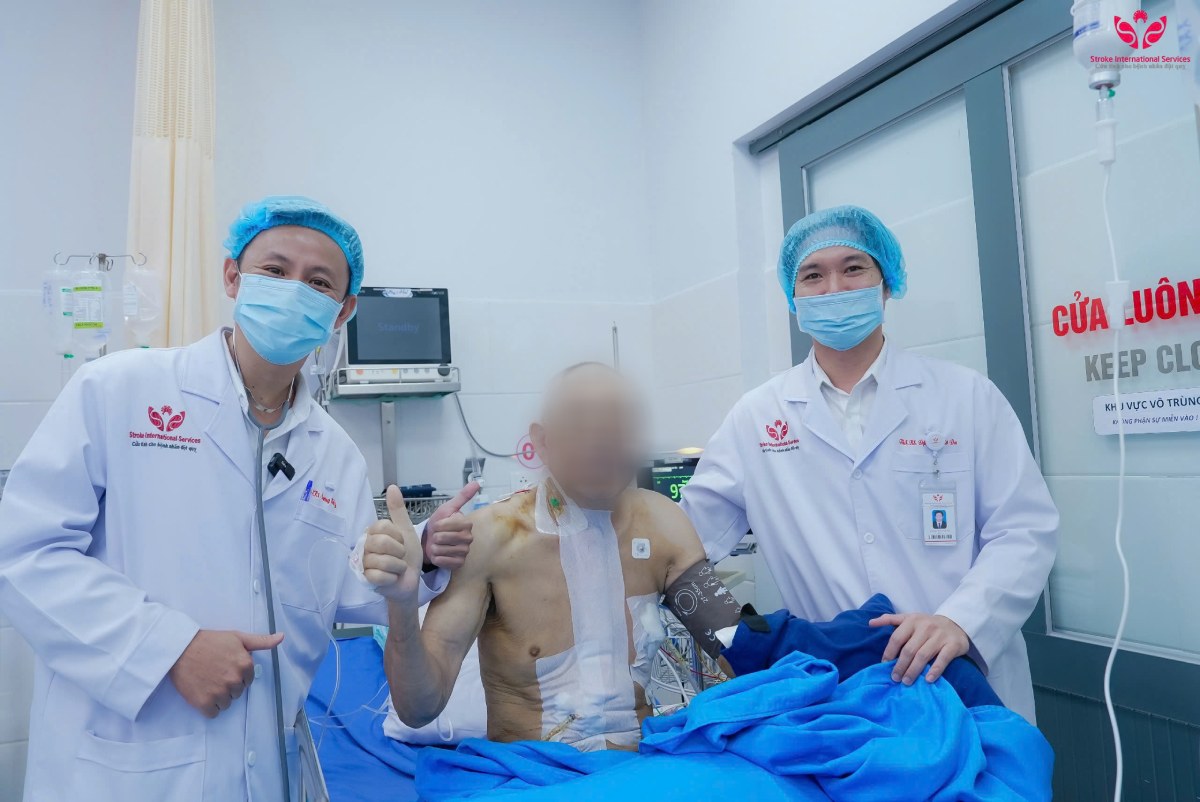The patient is Mr. T.V.V (77 years old, from Vinh Long), who came to S.I.S Can Tho International General Hospital in a state of fatigue, shaking, and sweating.
Through examination and testing, doctors discovered that he had a large tumor in the chest area. Chest CT scan showed that the largest mediastinal tumor was up to 15cm in size, compressing the heart and lungs, causing fatigue and difficulty breathing.
After consultation, the doctors decided to perform open chest surgery, split the sternum to completely remove the tumor. The surgery lasted about 4 hours and was successful, the tumor weighing more than 1kg was removed from the patient's body.

Specialist Doctor Dang Van So Da - General Surgery Department, SIS Can Tho International General Hospital - said that during the surgery, doctors noted that the tumor was firmly attached to the aortic arch and invaded the pericardium. Therefore, doctors had to separate the tumor from the aorta. At the same time, the tumor also invaded the innominate vein, so this vein had to be removed. Part of the tumor was still attached to the pulmonary artery, forcing further separation.
“Given the complexity and risk of damaging major arteries, the surgery required extreme caution. Fortunately, we were able to successfully remove the tumor without causing harm to the patient,” said Dr. Soda.
Before the surgery, the anesthesiologist administered an epidural analgesia to the patient. Less than 24 hours after the surgery, the patient was able to sit up and have good contact, with little pain. This was a gratifying surgical outcome, especially for an elderly patient.
After more than 1 week of treatment, the patient was discharged from the hospital and continued to be monitored and re-examined periodically.
According to Dr. So Da, mediastinal tumors often have no obvious symptoms until they compress neighboring organs. However, when patients feel chest pain, have difficulty breathing or have signs of drooping eyelids, they should visit a specialized medical facility for early examination. With large tumors that compress important organs such as the heart and lungs, patients may experience severe symptoms such as difficulty breathing, respiratory failure, and even death if not operated on promptly.










